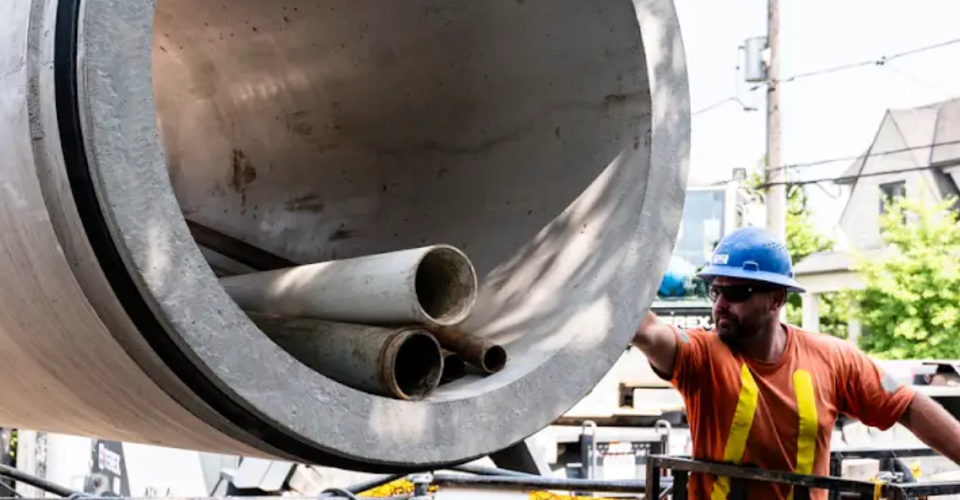

Water and wastewater professionals make life possible for millions. We’re the builders. The men and women supplying clean water to homes, schools, hospitals, and more.
This industry is more than drinking water and sanitation. We divert floods and create critical infrastructure. We’re the people powering Canadian communities.
Beyond the assumptions and misplaced associations, you’ll find a growing field populated by the next generation of skilled labourers, engineers, and other experts.
A Single Drop sets the record straight, giving you the real story about what it’s like to be a part of our industry.
No! Ontario’s municipal infrastructure construction sector is rapidly expanding and in need of new people to help address growing demands. We’re seeing new openings in everything from entry-level positions to leadership roles, and all positions offer opportunity for professional growth.
Explore job opportunities on our job board and see where a career in infrastructure can take you.
While compulsory trades (e.g. electricians, plumbers, etc.) require a Certificate of Qualification or apprenticeship registration in order to work, voluntary trade workers have more freedom. You can ‘earn while you learn’ on the jobsite, and don’t have to register as an apprentice or become a certified journeyperson. Examples of voluntary (or non-compulsory) trade roles include the majority of trades used to build municipal infrastructure, such as: laborers, pipe-layers, topman, and heavy equipment operators.
It takes a village to build water, wastewater, and stormwater infrastructure. There are dozens of roles in the industry. Check out our Career Paths pages to learn about roles in engineering, excavation, equipment operation, and more.
Building Ontario’s infrastructure pays well! Compensation ranges from $50,000 to $250,000. Remember, your pay depends on your experience, responsibilities, and location, as well as your interest in learning.
Explore the career paths and with salary ranges on our careers page.
Some entry-level positions require nothing more than a desire to learn on the job. Others may require some college or university education. Check out each role’s requirements.
No professional resume? No problem. We recognize that not everyone has a professional resume, so we have created a form for each application where you can fill out your previous job experiences and relevant skillset instead. Browse our job openings and see if there is a fit for you.

